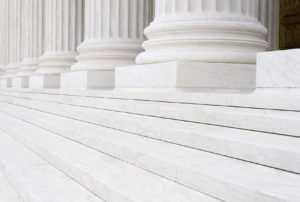On March 9, 2023, a federal judge granted summary judgment on causation to three manufacturers of asbestos-containing products in a maritime lawsuit arising from the death of Thomas Deem from mesothelioma. The judge held that Ms. Deem had failed to put on evidence sufficient to show that Decedent’s exposure to the products manufactured by three defendants—John Crane, Inc. (“JCI”), Crosby Valves, LLC, and the William Powell Company—was a substantial contributing factor to his developing mesothelioma. See Sherri L. Deem v. Air & Liquid Systems Corp., et al., No. 17-5965BHS (W.D. Wash. Mar. 9, 2023). Continue Reading Frequency, Regularity, Proximity: The Western District of Washington Requires More Than a Product’s Presence to Find Causation









